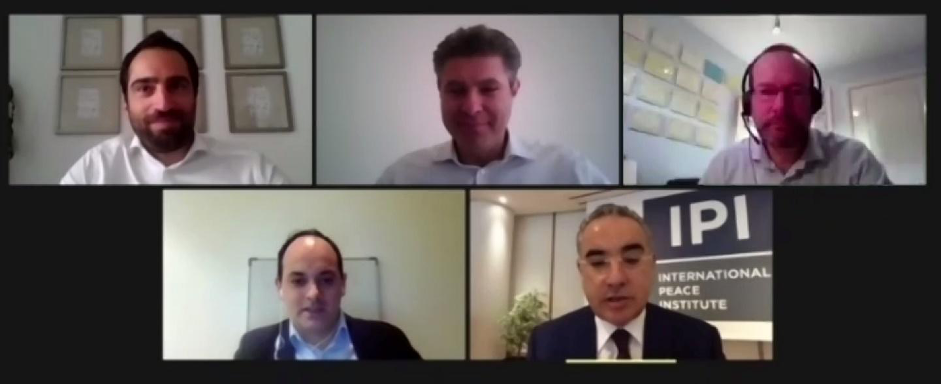
During the 4th MENA Pensions Conference organized by Fintech Robos held on November 16th, IPI MENA Director Nejib Friji joined a chorus of pension funds officials, actuaries, and finance experts calling for a global multilateral response to address the global pension funds crisis.
Mr. Friji, who opened and moderated the first session, “Can Defined Benefit Pension Systems be Saved,” urged the government, private sector, and trade unions to work together in creating a pension strategy framework based on prudent foresight, population structures, and sound economic policies before the pension crisis threatens social and global peace.
Mr. Friji noted that parallel to the MENA region’s drastic population growth and “youth bulge” is the increase of global life expectancy and the expected surge in the region’s senior population from 10 million to 70 million by 2050.
“We must also keep in mind that unemployment rates in the MENA region are at 25%,” he underscored. “The current coronavirus pandemic has undoubtedly added to that percentage of unemployment on a global scale. Meanwhile, 90% of the world’s working-age population is already not covered by pension schemes.”
Greater life expectancy, significant unemployment, and strains over limited public resources are bound to boil over, he stressed.
In addressing the impact of the coronavirus pandemic on pension systems, Philip Wheeler, Senior Manager of Ernst & Young, discussed the pandemic’s impact and pressures on funds such as increased life expectancy, lifestyle changes, retirement age, and a growing labor market.
Simon Herborn, Associate Partner at AON, referred to Bahrain’s recent implementation of parametric reforms as a prime example of what is required to improve the region’s public pension system.
“Pushing back the retirement age, making adjustments to the benefit amount, making the indexation of pensions a requirement and conditional of the financial position of the system, and partially raising the contribution rate are key parametric reforms,” he stated.
Hazem Abdulrahman, Actuarial Consultant at Mercer in the United Arab Emirates, referred to the Mercer CFA Institute Global Pension Index 2020, a report that compares 39 retirement income systems, representing more than 64% of the world’s population. Mr. Abdulrahman noted that “Grade A” pension systems include the Netherlands and Denmark, while Saudi Arabia is at a Grade C due to long-term sustainability issues.
Iyad Hourani, Managing Partner & Actuary of 4Sight Advisory Solutions, reiterated that most countries scoring well on indexes tend to be those that have adopted a multi-pillar approach—a system the Gulf region has yet to incorporate. He focused on the agility of the systems and the need for legislation that is dynamic and capable of adapting to a rapidly changing demographic and economic environment. Mr. Hourani stressed the need for an awareness campaign on reform issues, including why reforms need to be changed gradually for the system to remain sustainable.
In his closing remarks, Mr. Friji reiterated the importance of pensions in connecting peace, society, security, and sustainable development. He pledged IPI’s readiness to team up with experts, governments, and financial institutions to bring this issue to the forefront of the international community’s agenda.







